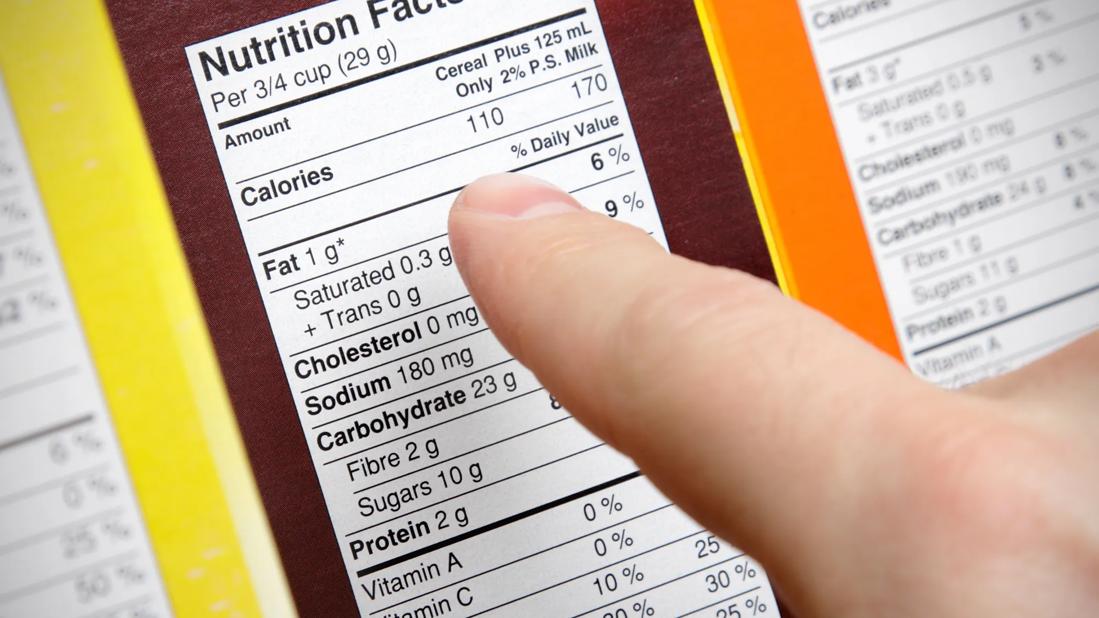Calorie counts on nutrition labels can be off by up to 20%

Image content: This image is available to view online.
View image online (https://assets.clevelandclinic.org/transform/503d95ba-93ef-49c9-a7cd-faf8f7870dd7/food-label-calories-169969494)
Finger pointing to food label nutrition facts, including calories
Counting calories can be tedious. And if you’re doing it for weight loss, you know every calorie counts. Being off by a few calories here or there may not make or break your weight loss strategy. But over time, those calories can add up. That means the accuracy of calorie counts matters — whether you get the info from apps, nutrition labels or online.
Advertisement
Cleveland Clinic is a non-profit academic medical center. Advertising on our site helps support our mission. We do not endorse non-Cleveland Clinic products or services. Policy
No — and here’s why: Whenever a food is processed, it becomes challenging to determine its exact calories. Knowing that, the U.S. Food and Drug Administration (FDA) allows calorie counts listed on nutrition labels to vary by as much as 20% from actual calories.
“If something you’re eating is 100 calories per serving, it could actually be 120 calories,” says registered dietitian Michelle Dodd, RD, LD. “That can make a big difference, and I don’t think many people realize there’s a 20% swing.”
The calorie listing on packaged foods may be wrong for several reasons, including:
Whether machines or humans package food, there’s always room for error.
“Factories aren’t perfect,” Dodd notes. “Just a tiny bit more or less of one ingredient will throw off the entire calorie count.”
To account for these discrepancies, manufacturers often take a sample of servings and calculate the calories, she explains. The calories per serving listed on the package are the average calories per serving.
While most manufacturers periodically check the nutritional content of their food, some calorie counts may be outdated. But it’s less about packaging errors and more about innovations in how we grow and harvest many ingredients.
Advertisement
“There’s a lot of genetic modification going on with our food, especially grains, that wasn’t happening years ago,” Dodd shares. “Those variations can change the assumed calorie counts of the whole foods used in these products.”
Most people count the calories in a meal based on the ingredients. But the result — what you eat — may differ from what you planned to eat.
Research shows that the preparation and cooking methods may affect the metabolized energy of some foods. Chopping, roasting or grinding may break down the structure of the food and affect the number of calories you absorb. You also need to factor in ingredients used to cook the food, such as oil.
“Cooking methods play a huge role in calorie counting,” Dodd says. “People don’t realize how many calories they add and tend to undercount any oil they add to the dish.”
Your gut microbiome — the microorganisms in your digestive tract — is unique to you. And it impacts how you digest food.
“The way I digest something isn’t the same as someone who has inflammation or can’t move food through their digestive tract as easily,” Dodd clarifies. “Chronic diseases and their treatment also affect what you absorb from your food.”
Counting calories can offer accountability, portion control and a way to measure for weight loss. But it’s not the only way of eating that achieves those goals.
Dodd shares other ways to lose weight and still kind of track calories without actually tracking calories.
“Counting calories is paying attention to the amount you’re eating and learning what a portion looks like,” Dodd says. “Any way of eating that keeps you on track with portion sizes can help you lose or maintain your weight.”
Advertisement

Sign up for our Health Essentials emails for expert guidance on nutrition, fitness, sleep, skin care and more.
Learn more about our editorial process.
Advertisement
Lifestyle changes can bring a slight metabolic boost and health benefits
It depends on factors like your age, activity level and if you want to maintain, lose or gain weight
Avocados, cheese and nuts are high in calories but have big health benefits
Calorie reduction can do more than just help you lose weight — it can also lower age-related inflammation
Your metabolism may torch 1,300 to 2,000 calories daily with no activity
Consuming fewer calories than your body burns is a ‘calorie deficit’ that can lead to weight loss
Understand how your body creates energy to take your fitness to the next level
When free radicals don’t have antioxidants to keep them in check, they go rogue
Although it could be used as a moisturizer, this new trend is not recommended
Communicating clear limits helps protect your time, energy and emotional well-being
High cholesterol can be genetic, but testing and treatment can lower your heart disease risk